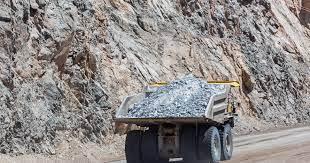
https://www.business-humanrights.org/en/latest-news/oecd-releases-brief-...
The newly released OECD briefing note titled "Responsible is Reliable: How responsible sourcing can address disruption factors and geopolitical risks in the supply of transition minerals" addresses critical issues related to business, human rights, and due diligence in the context of the global transition to renewable energy and electrification.
The world's transition to renewable energy and electric vehicles is heavily reliant on the availability of transition minerals like cobalt, lithium, copper, and rare earth elements. The briefing identifies the following challenges and risks associated with their supply chain:
- Geopolitical Risks: Transition minerals are not equally distributed globally, leading to concentration in a few countries. For example, the Democratic Republic of the Congo supplies 70% of cobalt, and China dominates the supply of several other minerals. This geopolitical concentration poses risks to the reliability of supply.
- Conflict-Affected and High-Risk Areas: Many of these minerals are located in conflict-affected or high-risk regions, where issues like corruption, security concerns, and human rights violations are prevalent. Over 70% of cobalt, graphite, and rare earth element resources are in countries perceived as corrupt.
- Environmental and Ethical Concerns: The extraction of transition minerals often has negative environmental and social impacts, including human rights abuses and environmental degradation. The report draws on the over 500 allegations of human rights abuses related to these minerals between 2010 and 2022 registered in 2022 Transition Minerals Tracker by the Business and Human Rights Resource Centre.
- Market Dynamics: The rapidly growing demand for transition minerals, combined with limited investments in mining capacity, raises concerns about potential supply-demand mismatches and price volatility.
The briefing note highlights the importance of responsible sourcing and due diligence in addressing these challenges. It emphasizes the need for companies and governments to adopt responsible practices throughout the mineral supply chain. The OECD Due Diligence Guidance for Responsible Supply Chains of Minerals is presented as a practical framework to help companies ensure that their supply chains adhere to international standards, mitigate risks, and contribute to sustainable development.
Furthermore, the note stresses that governments have a critical role to play in fostering a stable and responsible global supply of transition minerals. Cooperation between countries, rather than competitive bidding wars, is encouraged to promote responsible sourcing and mitigate risks associated with these critical resources.









